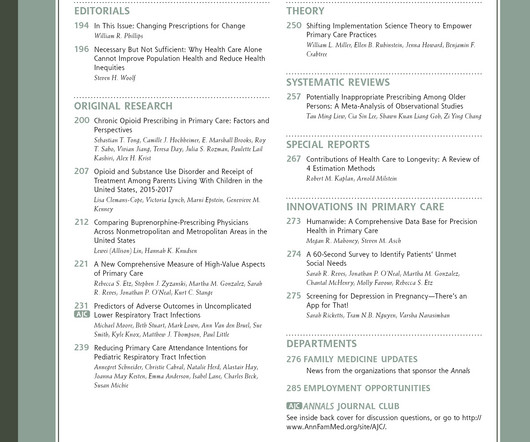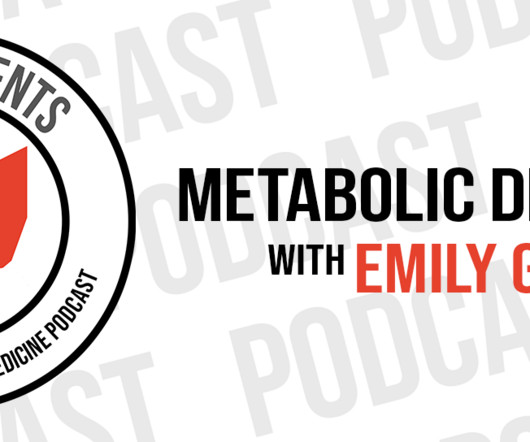Oral versus intravenous antibiotics for the initial treatment of acute pyelonephritis in adults: a systematic review [Acute and emergency care]
Annals of Family Medicine
NOVEMBER 20, 2024
Objective This systematic review aims to determine if oral antibiotic treatment is non-inferior to single dose IV followed by oral antibiotic treatment in terms of efficacy and complications in adults presenting to the emergency department (ED) with acute pyelonephritis. Results The search yielded 2,478 records, with 813 duplicates.






























Let's personalize your content